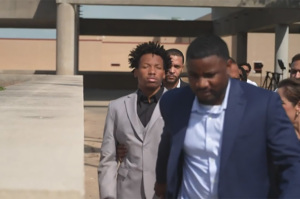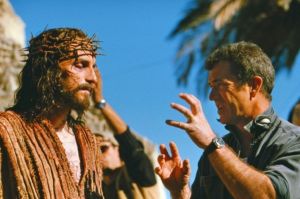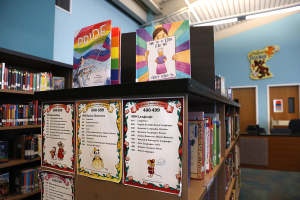Christian Author Tells Story Through Lazarus' Eyes About 'God's Favorite Place on Earth'
Best-selling Christian author Frank Viola takes a unique look at the relationship between Jesus Christ and the town of Bethany through his interpretation of what Lazarus may have witnessed in his upcoming book, God's Favorite Place on Earth. In essence, Viola says that through his research for the book he came to the conclusion that all Christians should be God's "Bethany," a place where God is welcomed.
"The premise of the book is simple and 100 percent biblical: when Jesus was on the earth, he was rejected everywhere he went – from Bethlehem, to Nazareth, to Jerusalem. The only exception was the little village of Bethany," Viola stated.
Viola describes the book, planned for release on May 1, as a hybrid between devotional prose, historical fiction and biblical scholarship. He told The Christian Post in an interview on Monday that it is also a practical book written to help Christians face the struggles of every generation, namely: doubt, discouragement, fear, division, rejection, consumerism and complacency. "It does so by bringing a rarely taught story in the Gospels to life," he said.
God's Favorite Place on Earth has received many endorsements from Christian leaders, including Mark Batterson, author of The Circle Maker, who wrote, "This is a masterfully engaging book that distills the vision of the Christian life into one focused quest: To be God's favorite place on earth today. I recommend this little volume to all Christians and Christian leaders."
Viola's interview with CP is below.
CP: Why did you decide to look into the story of Bethany as related to Jesus?
Viola: For several reasons, one is because the story is spread out all throughout the Gospel so it's difficult to put into chronological order and see what really happened there unless you do the work to carry that very thing out. That's what I did in the book. I put all of Jesus' visits to the little village of Bethany in chronological order and I take you there from the beginning to the end. When you look at all of it together it's mind blowing to see so many things that happened there and how it applies to us today in such a practical way. Also, that story changed my life. I wanted to put it in print so hopefully it would have the same affect on others.
CP: You say that the narrative story coming out of Bethany can change lives. How so?
Viola: It reduced the Christian life and pursuit onto one thing. That one thing is that God wants a Bethany today in every heart and in every church. When Jesus of Nazareth came to earth he was God in flesh and he was rejected in every corner in which he stepped from the womb to the tomb. He was rejected in Bethlehem – there was no room for him there. When he is two years old he is being hunted down by Herod like an animal. His own brothers and sisters did not believe upon him. He was rejected in Nazareth, his hometown where he grew up. He said, "A prophet is not without honor except in his own hometown." He was rejected in Samaria when he tried to go there. James and John wanted to bring fire down from heaven and watch Samaria shake and bake because they rejected Jesus. And then he was rejected in Jerusalem, the very city of God. They not only rejected him, they crucified him.
We have this universal rejection where Jesus even said, "Foxes have holes and birds have nests but the Son of man has nowhere to lay his head." John said, "He came to his own and his own received him not." But there was only one exception to this which I find remarkable and powerful, and that was a little village just two miles outside of Jerusalem, a very obscure place, a very humble and modest place, not very many people there, called Bethany. Lazarus lived there with his two sisters, Mary and Martha. And that was the only place on the planet that properly and fully received Jesus of Nazareth – so much so that Bethany became home for him, a place where he could lay his head. He spent the last week of his life in Bethany.
The very last place on earth to touch the feet of Jesus was Bethany. He ascended to heaven from Bethany. For all those reasons it holds so much for us and what I do in the book is I bring out lots of principles and teachings that apply to us today in the way of resolving struggles and problems that we Christians face.
CP: You say in the introduction of the book that your life was changed as well because of your study on Bethany. Can you explain?
Viola: Not only did it give me a vision that has governed my life since I've been a Christian over the last 15 to 20 years, God wants me to be a Bethany, for example, and that makes Christianity so simple. I'm not chasing 613 things to do anymore, [instead] it is God simply wants a Bethany place where Jesus can lay his head and all that means.
It's difficult to deal with unjust criticism and rejection from your fellow Christians and this is what Jesus tasted all his life. He said, "I was wounded in the house of my friends." So when you look at this story and you look at this universal rejection, and then you find this one place where he was received, you start to learn what rejection is about and how Jesus handled it.
Just seeing how Jesus handled it all is a game changer. I trust God now more than how I understand His promises. I list 18 struggles on the book's [website] page, GodsFavoritePlace.com. It's not armchair philosophy, it's stuff that I lived through.
CP: Why did you decide to do the book in the form of a narrative book in the eyes of Lazarus?
Viola: I thought it would be more powerful, more compelling, and make the story electric and come alive. Story is the language of our day. By putting it in the viewpoint of Lazarus kind of has that novel feel. I wanted to broaden my audience. I tried to create a hybrid where part of it is Lazarus telling a story and the other part is me writing and bringing out straight prose, and bring out the principles of the story. It's something that I am calling a biblical narrative where you have fictional elements and non-fictional elements.
CP: What would you like readers to come away with after reading your book?
Viola: I want them to see their Lord in 3-D, high definition. That they would see him in such a striking way, particularly his humanity and feel like they could relate to him a lot easier. And that they would understand what God wants, perhaps above everything else, and that is to be a Bethany for Jesus Christ on the earth today, a place where he can lay his head – all of what that means and all of what that involves.
On the Web: GodsFavoritePlace.com





























